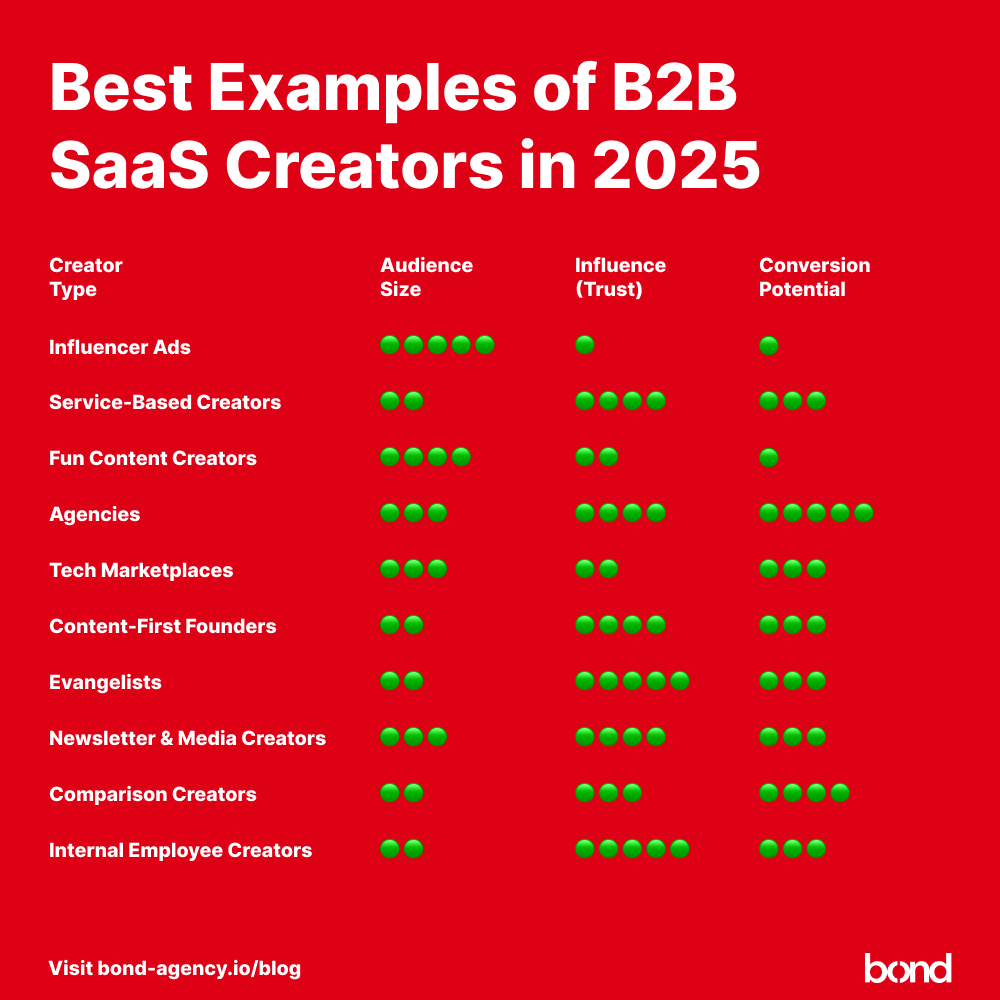

We're launching a B2B Creator award to stimulate, enable and award creative excellence in B2B Technology industry.
Join the waitlist: https://tally.so/r/wkzA8r
------------
Hello there!
The word “creator” used to mean someone with a YouTube channel or a podcast mic. But in B2B SaaS? It’s taken on a whole new meaning.
Today’s buyers aren’t just reading analyst reports or sitting through polished vendor demos—they’re scrolling LinkedIn, bingeing niche newsletters, laughing at spot-on industry skits, and trusting real practitioners more than brand marketing.
That shift has sparked an explosion of new creator types—people who shape opinions, influence decisions, and drive action (sometimes without even realizing it). And smart B2B brands? They’re catching on. They’re sponsoring them, collaborating with them, and building entire partner programs around them.

Even Framer recently launched their own creator program which has an amazing landing page to explain it!

But here’s the kicker: not all creators are built the same. Some boost brand awareness. Others drive conversions. A few do both. So in this article, we’re breaking down the key types of B2B SaaS creators—from mega influencers to niche consultants—and laying out the pros, cons, and what they actually bring to your growth stack.
Two big takeaways before we jump in:
• Be entertaining. Be funny. Dry content dies.
• Take the time to make good videos. They win.

Let’s get into it.
P.S. The best ones? I saved them for last. 😉
-------------
People with a large following online who briefly mention your product, usually in a sponsored segment by them. The mention often feels disconnected from their main content but their audience love them so influencer them. Works well on Shopify podcast too.
Pros:
Cons:
Exemples:
FullEnrich App using the funniest cold call content creator out there at the moment and using this content as a ad! Brilliant

.gif)
-------------
Creators who run a solo consultancy or small agency. They showcase their tech stack while sharing practical tactics, workflows, and service offerings. Often operate as experts in a niche.
Pros:
Cons:
Examples:




Link



More and more creators are producing exceptional industry content — not for their own employers, but for themselves and sometimes other tools. They’re not always promoting products, they’re building credibility. Some might become future consultants, but trust me: they’re already getting invited to major conferences and top podcasts. Why? Because they’ve mastered the art of building an audience around insight, not sales.
Examples:


-------------
Creators who simplify, parody, or dramatize a particular industry or department for entertainment. Increasingly, companies are hiring these creators as full-time employees to build in-house audiences.
Pros:
Cons:



-------------
Teams of 10–20 employees, often certified in specific platforms like Shopify, Klaviyo, or Hubspot. Their services include tech implementation and recurring support.
I would say that their content is usually more "intellectual" rather the usual "Entertaining" creator content that we have now. But again, they will talk about your product
Pros:
Cons:
Examples:

But with agencies, it's not really about their content I found that you get the most visibility or ROI, it's really when your tools become part of the services and basically get found as an agency because they are your tool agency in the market.

-------------
Not sharing the huge tech marketplace here. This is not what is about. I am want to mention marketplaces that also create amazing content to attract buyers on social and others channels.
They are really curated platforms that help businesses discover useful tools or exclusive deals. Some are industry-specific.
Pros:
Cons:
Examples:
.png)
.png)
https://resources.storetasker.com/perks-of-storetasker
.png)
-------------
Founders who build in public and share their journey, lessons, and playbooks. Think: indie hackers, bootstrapped SaaS builders, or even well-known startup founders using LinkedIn, Twitter, or YouTube as their primary content channel.
Pros:
Cons:
Examples:




-------------
Engineers or technical experts who create content about APIs, integrations, and dev workflows. Often share code examples, GitHub templates, or tutorial videos.
Pros:
Cons:
Examples:

-------------
People running niche newsletters, podcasts, or online communities with strong editorial control and dedicated audiences. Not always “influencers,” but highly influential.
Pros:
Cons:



-------------
People who specialize in comparing tools—think “Top 10 tools for X,” or deep dives into platform ecosystems. They often monetize through affiliate links or YouTube.
Pros:
Cons:
-------------
Employees at SaaS companies who build a personal brand online—sharing behind-the-scenes takes, educational content, or industry commentary.
Pros:
Cons:
Exemples:





Thanks for reading!
Subscribe to our newsletter for a roundup of the latest in partnerships, straight to your inbox.